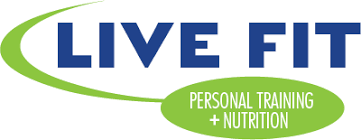Quality VS. Calorie: Is It Really That Important For Weight Loss?
Researchers at Harvard University have honed in on the idea of purchasing food items that are not based on caloric value, but are deemed as high quality.1 High quality foods are considered to be those from unrefined products, fruits and vegetables with minimal processing, whole grains, healthy fats, and healthy sources of protein.1 Sound familiar? Well, these foods are ever so often passed up during our supermarket dashes, being replaced by those foods with heavy processing and high caloric contents. Convenience foods have excessively infiltrated our supermarkets, implying the concepts of “ready-to-eat” instead of cooking from scratch.
Convenience foods often times imply that they are healthy through creative marketing and packaging, but sometimes these foods contain added sodium and sugars that may be detrimental to our health. Often times the statement that a “calorie is a calorie” is stated among us consumers, allowing us to believe that 100 calories consumed in potato chips is considered the same as 100 calories consumed from brown rice. Well folks, I’m here to tell you that it’s not. We in the health and wellness industry have been working hard to debunk the myths, promote foods that are high quality, and stress the importance of a well balanced diet with a combination of daily exercise.
So, this brings us back to the question, is a calorie just a calorie? Well, in a research study conducted over a span of 20 years, encompassing 120,000 healthy men and women, determined that individuals with higher intakes of potato chips, potatoes, sugar-sweetened beverages, and both processed and un-processed red meats, were most strongly associated with weight gain.2 So, what foods are associated with higher weight loss you may ask? Foods that have the potential to promote weight loss if consumed in proper portions are as follows:
Fresh fruits
Fresh vegetables
Lean meats: boneless/skinless chicken breast, turkey, 93% or higher ground meats
Fish products: salmon, tilapia, and cod
Whole grain products: brown rice, whole wheat breads, quinoa, whole wheat pasta, granola
Nuts: almonds, walnuts, unsalted peanuts, pistachios, cashews
Yogurt – plain Greek yogurt or a similar product. Caution: Be careful when purchasing Greek yogurt as often times extra sugar is added in order to enhance flavor
The next time we’re at the grocery store, stop and get some of those fruits and vegetables, purchase some lean meats and fresh fish, and enjoy the foods that are going to get you to where your goals have been set. Spring clean that diet of yours, focus on those quality foods, and keep that physical activity up each week. We can help provide those high quality/high endurance workouts, but it’s up to you to fuel yourself with foods that are going to maintain results long-term. Life is about choices...choose to live healthy. References
Harvard School of Public Health. The Best Diet: Quality Counts. Harvard School of Public Health WebSite. http://www.hsph.harvard.edu/nutritionsource/best-diet-quality-counts/. Accessed March 22, 2016.
Sifferlin A. Eating Healthy is Cheaper Than You Think. Time Magazine WebSite. http://healthland.time.com/2013/12/05/eating-healthy-is-cheaper-than-you-think/. Published December 5, 2013. Accessed March 22, 2016.
